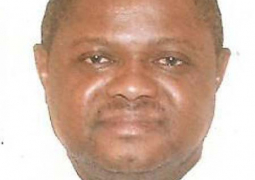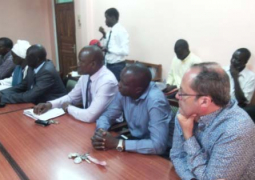President
Barrow has disclosed that he will announce his cabinet today or tomorrow.
In
relation to this development, we deem it necessary to highlight an article
entitled: ‘Challenges Facing the New Political Dispensation’ written by Burang
Goree-Ndiaye, an Assistant Professor at the University of The Gambia, advising
the president to put the right persons in the right places.
For
the good of our readers and the nation, we republish verbatim excerpts of the
article as a guest editorial:
Putting
the right persons in the right places
It
should be recalled that President Barrow has said he had constituted a
‘Think-Tank’ to identify the most suitable individuals to fill key positions in
his government, and to formulate a realistic socio-economic development
blueprint for the next three years. Who are these ‘thinkers’? The Gambian
people need to know who they are to judge if they are the most appropriate to
undertake these crucial tasks. The country is not short of ‘thinkers’ with
brilliant ideas, it’s a question of looking for them and bringing them onboard.
In
his quest to bring onboard ‘the brightest and the best’ and to have the ‘best
person for the job’, a roster of Gambians with the requisite academic
credentials and expertise must be compiled and a shortlist of potential
candidates for the respective positions made, who would then be invited for
talks regarding their willingness to serve their nation in that capacity during
the transition period. There are a lot of highly-educated, experienced,
competent and capable Gambians, in and out of the country, who are ready to
serve their country in a capacity that is commensurate with their expertise, if
called upon.
The
composition of Barrow’s Cabinet and appointments to ambassadorial and top
positions will be a test case. Apart from choosing the most competent, people
will be watching keenly to see if his choices will be representative of and in
proportion to the ethnic, religious and gender mix of the country. Eyebrows
will be raised and mistrust will set in if appointments to such positions are
disproportionate. If the Cabinet and top appointments are not balanced,
fostering cohesion among the populace would be difficult to realize.
It
should be underlined that appointments to top positions should be based on
merit, not on political affiliation, or the extent to which one was involved in
the election campaign, or how close to or supportive one was of the President
during this period. If we take the United States, for example, President
Trump’s nominees for cabinet positions are not people who were in the vanguard
of his election campaign, but people who are deemed highly-qualified,
competent, and capable and with a good track record of success, ready to serve
their country in these positions.
Being
aspirants to the presidency, I am of the opinion that none of the leaders of
the parties that make up the Coalition should hold office in Barrow’s
government. Having different political agendas, holding cabinet or key
positions in the three-year transition government would be a conflict of
interest. Their primary role should be to provide the oversight necessary for
the smooth and orderly transition.
Institutional
reforms and good governance
One
of the most difficult challenges that President Barrow will have to contend
with will be the reforming of government institutions and making them more
efficient and accountable....
The
leadership in many of our public and quasi-government institutions can be
likened to ‘square pegs in round holes’, which has resulted in dysfunctional
establishments and a paralyzed government.
“The
calibre of legislators we now have are not what the new Gambia should have.”
Burang
Goree-Ndiaye



